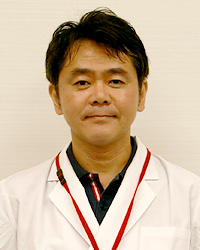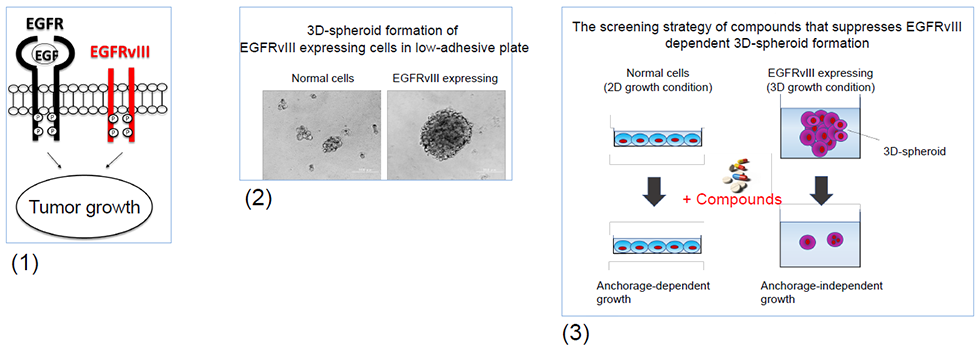Biology DivisionLaboratory of Oncology
Research Outline
Our research mainly focuses on cancer. We are studying cancer biology at the molecular level in order to identify new therapeutic targets and strategies for cancer treatment. Furthermore, based on our findings, we are developing new candidates for anti-cancer drugs by screening for bioactive natural compounds in microbial cultures using our original experimental systems.
Members
Please replace [at] in the email address with @, the at symbol.
Laboratory Head Manabu Kawada kawadam[at]bikaken.or.jp

Senior Researcher Tomokazu Ohishi ohishit[at]bikaken.or.jp

Senior Researcher Shun-ichi Wada wadas[at]bikaken.or.jp
| Researcher | Daisuke Tatsuda |
| Researcher | Junjiro Yoshida |
| Researcher | Masahide Amemiya |
| Postdoctoral Researcher | Manami Kodaka |
| Technical Staff | Honami Kuriyama |
| Technical Staff | Tomoko Miyazawa |
| Technical Staff | Izuho Suwa |
Two more Researchers
Themes
Theme outlines
1. Growth suppression of cancer cells through “tumor-stromal cell interactions”
Tumor tissue contains not only cancer cells but also several stromal components. In particular, fibroblast-like cells are profoundly involved in the regulation of cancer cell growth through “tumor-stromal cell interactions”. We have focused on these interaction to discover new cancer therapeutics.

2. Screening of compounds that suppress EGFRvIII dependent 3D-spheroid formation
EGFRvIII is a deleted mutant of the ligand binding domain of EGFR (epitherial growth factor receptor) (1). The expression of EGFRvIII is found in intractable and high malignantly tumor tissues such as glioblastoma. Normal cells transfected with EGFRvIII acquire “anchorage-independent growth“ and can form spheroids in low-adhesive plates (2). The aim of this research is to discover compounds that suppress the growth of EGFRvIII expressing cancer cells specifically in the spheroid forming condition (3). These compounds are expected to be new anti-cancer therapeutics.

3. Screening of new anti-cancer agents using panel of various cancer cell lines
Cancer chemotherapy requires the use of particular anti-cancer agents according to characteristics of cancer types because the phenotype and sensitivity for drugs of cancer cells are depending on the patient and the site of development. We are studying the sensitivities of several cancer cell lines from several patients to anti-cancer agents using a panel of cancer cell lines. Additionally, we are aiming to discover new natural compounds from microbial cultured media which are selectively toxic to cancer cells over normal cells.


 +81-3-3441-4173
+81-3-3441-4173  office@bikaken.or.jp
office@bikaken.or.jp